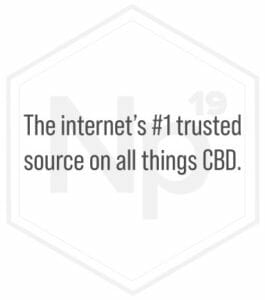The global landscape of CBD regulation presents a complex mosaic of laws, restrictions, and emerging policies. As CBD gains popularity worldwide, understanding these international variations becomes crucial for consumers, businesses, and healthcare providers. From North America’s relatively permissive approach to Asia’s stricter regulations, each region’s unique legal framework shapes how CBD products are produced, sold, and consumed.
United States: A Federal and State Balance
The United States maintains one of the world’s most developed CBD markets, though navigating its regulatory framework requires understanding both federal and state-level requirements. The 2018 Farm Bill legalized hemp-derived CBD containing less than 0.3% THC at the federal level, but individual states retain significant control over local regulations. Some states have embraced CBD in various forms, including edibles and cosmetics, while others maintain stricter limitations on product types and distribution channels. CBD Laws in the United States (at a Federal level) still allow for the use of CBD products that do not contain more than 0.3% THC.
Canada: A Progressive Framework
Canada’s approach to CBD regulation mirrors its progressive stance on cannabis policy. Unlike many countries, Canada regulates CBD as a cannabis product rather than treating it separately. This classification means CBD falls under the Cannabis Act, requiring strict licensing for production and distribution. While this framework ensures product quality and safety, it also means CBD products must be sold through licensed cannabis retailers rather than general retail outlets.
United Kingdom: The Novel Food Approach
The United Kingdom has adopted a distinctive approach to CBD regulation, classifying it as a novel food under European Union guidelines, a position maintained post-Brexit. This classification requires manufacturers to submit detailed safety assessments and receive authorization before bringing products to market. The UK’s Food Standards Agency has established a clear pathway for CBD product approval, though only oral products containing isolated CBD are eligible for novel food authorization.
Germany: Medical Framework and Beyond
Germany stands as one of Europe’s largest CBD markets, with regulations that distinguish between medical and wellness applications. Medical CBD products require prescription and face strict pharmaceutical controls. The wellness market operates under novel food regulations similar to the UK, though German authorities have shown increasing flexibility toward CBD in certain consumer products, provided they contain no more than 0.2% THC.
Australia: A Transitional Market
Australia’s CBD landscape has undergone significant changes, with recent reforms making low-dose CBD products available over-the-counter through pharmacies. This shift represents a middle ground between strict medical regulation and open access. However, products must first navigate a rigorous approval process through the Therapeutic Goods Administration, limiting the current market primarily to prescription products.
Japan: Conservative But Opening
Japan maintains one of Asia’s more conservative approaches to CBD, though the market has shown signs of opening. While CBD is legal, products must contain no detectable THC, a stricter standard than many Western nations. This requirement significantly impacts product availability and manufacturing processes. Despite these restrictions, Japan’s CBD market has grown substantially, particularly in cosmetics and wellness products.
Switzerland: A Unique European Approach
Switzerland has carved out a unique position in Europe’s CBD market by allowing products with up to 1% THC content, significantly higher than most countries’ 0.2% or 0.3% limits. This higher threshold has fostered a robust CBD industry, though products must still comply with strict quality control and labeling requirements. The Swiss approach demonstrates how alternative regulatory frameworks can support market development while maintaining safety standards.
Israel: Research Leader and Emerging Market
Israel’s significance in the global CBD landscape stems from its position as a research leader rather than market size. The country’s advanced medical cannabis research programs have contributed significantly to understanding CBD’s therapeutic potential. While domestic access remains primarily medical, Israeli research continues to influence global CBD policies and applications.
Brazil: Medical Focus with Expanding Access
Brazil’s approach to CBD emphasizes medical applications while gradually expanding access. The country’s health authority, ANVISA, has established clear pathways for importing CBD products for medical use. Recent regulatory changes have also permitted domestic cultivation and production of CBD products, though under strict controls. This medical emphasis has created a more structured but limited market compared to North American countries.
South Korea: Emerging Acceptance
South Korea became the first East Asian country to legalize medical CBD, marking a significant shift in regional policy. However, access remains tightly controlled through medical prescriptions, with products requiring approval from the Ministry of Food and Drug Safety. The Korean model demonstrates how conservative markets can begin accommodating CBD while maintaining strict oversight.
Challenges in International Trade
International CBD commerce faces significant challenges due to varying legal frameworks. These differences affect everything from permissible THC levels to required testing protocols. Companies operating internationally must navigate complex import/export regulations, varying quality standards, and different labeling requirements. Some countries prohibit CBD imports entirely, while others maintain complicated approval processes.
Future Trends in Global CBD Regulation
Global CBD regulation continues evolving, with several notable trends emerging. Many countries are moving toward more nuanced frameworks that distinguish between medical and consumer applications. There’s also growing interest in international standardization of testing and labeling requirements. The World Health Organization’s recommendations on CBD scheduling may influence future regulatory changes, potentially leading to greater harmonization of international policies.
Conclusion
Understanding international CBD laws requires appreciating each country’s unique approach to regulation, enforcement, and market access. While some nations have embraced CBD across multiple product categories, others maintain strict limitations or medical-only frameworks. This diversity of approaches reflects different cultural, political, and scientific perspectives on CBD’s role in healthcare and wellness. As research continues and markets mature, regulatory frameworks will likely continue evolving, potentially moving toward greater international alignment while maintaining distinctive national characteristics.











